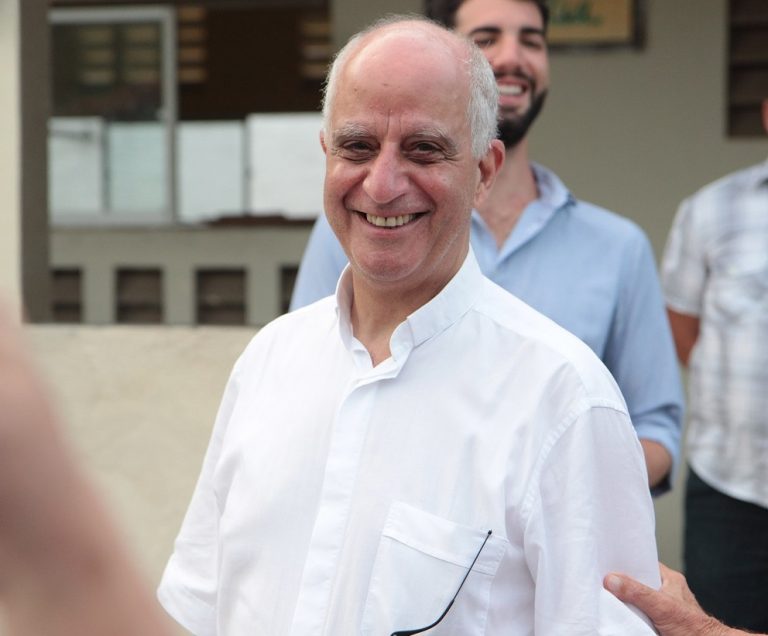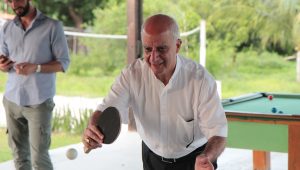
Madalena Aguiar, missionary and responsible for Human Promotion in the mission of Fortaleza, presented the project to His Grace Rino Fisichella and told him about her experience to be testimony of many transformed lives that passed through this place. Soon after, two young people gave their testimonies of addiction rehabilitation.
After the testimonies, His Grace Rino Fisichella shared his joy of visiting Shalom Community and knowing the Project:
“The face of Matthew attests that he is truly happy. I am a bishop who is near Pope Francis, and he gave me the responsibility of the evangelization. It is precisely for that reason that I feel close to Moyses. Moyses, Shalom, all the missionaries, the priests, the families, the seminarians, with Emmir, all those who, in Shalom charisma, live this beautiful adventure of evangelization, are a fundamental pillar of the New Evangelization.
During the Jubilee of Mercy, one Friday a month, the Holy Father performed the “Friday of Mercy”, in which he did a concrete act of mercy. One of the acts he did over the year was to visit a treatment house like this house. Pope Francis met friends like you, he listened to them as I am listening you, and in the end of the meeting he spoke to them. And, after, they ate a pizza. And I desire to speak to you, too. A word that contains a message. And the first word is love. Do never doubt that there is someone who loves you. Because the escape of drugs is often the escape from not feeling loved. There will be always someone who loves you, and this One asks you nothing in return of his love, because that is the love of Jesus. Jesus loved us without asking us anything in return, and that is the most important thing. Because, often, our love is like that: we love because we want the love of the others, we want something in return. Jesus, on the other hand, loved us without asking for anything in return, and it is in the love of Jesus that we find the gratuitousness of love. Jesus loves you because you are you, and for no other reason. This love that He has for us is so great that it makes us want to love Him too.
I want to tell you a beautiful story that happened to Saint Peter. You know that St. Peter betrayed Jesus. Not once, but three times. After the resurrection, Jesus met Peter. And what Jesus said to Peter was not “why did you betray me?” Well… if I were Jesus I would have asked that. Because when somebody from our social circle do something to us, the first thing we ask is, “What happened? Why did you do that?”. But Jesus did not like this. Jesus said to Peter, “Do you love me?” And Peter answered him, “Lord, I like you.” Peter did not tell Jesus “I love you”. Then, Jesus thought that Peter did not understand the question, then, the second time, he said, “Peter, do you love me?” And Peter, for the second time, said “I like you.” So, Jesus, for the third time, asked to Peter, “Peter, do you like me? Jesus no longer said “do you love me?”, he said “do you like me”? Do you know the difference between love and like? Because love means “I give you my whole life” and “to like” means “I give you a part of my life”. When you meet a nice girl, and you fall in love with her, and you ask, “Do you love me?” If she answers, “I like you,” you immediately understand that you can not continue the relationship, because to love is One thing and to like is another.

